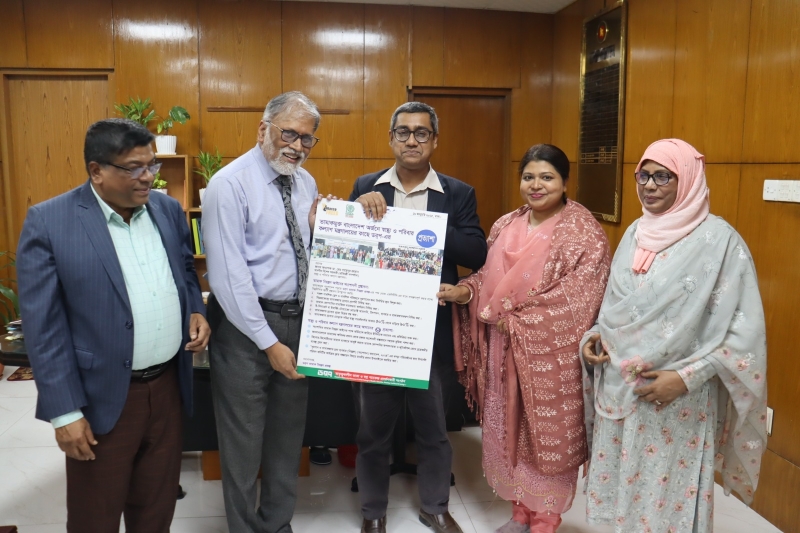- Security Council Divided on United States' Venezuela Action |
- Over 1.53m voters register for postal balloting: Shafiqul Alam |
- Bangladesh Bank to liquidate 9 NBFIs in financial sector reforms |
- Govt Moves to Clear Tk20,000cr Dues to Avoid Summer Outages |
- Maduro Pleads Not Guilty in US Court, Claims Presidency |
Govt paving the way for a smoke-free Bangladesh: DORP

Dhaka, 19 Jan : The government announced a significant step towards a tobacco-free Bangladesh, with new amendments to the Tobacco Control (TC) Law expected to strengthen the country's fight against tobacco consumption.
Professor Mohammad Sayadur Rahman, Special Assistant (State-ministerial Rank) to the Ministry of Health and Family Welfare, highlighted the government's efforts in controlling tobacco use and reducing its impact on public health.
On Sunday (19 January), in the evening, he met with a delegation of tobacco control projects from the Development Organisation of the Rural Poor-DORP at the Secretariat to discuss the future of tobacco control in Bangladesh. The discussion centred on accelerating the passage of the law amendments and achieving a tobacco-free Bangladesh.
Dr. Mohammad Sayadur Rahman emphasized the government's goal to prevent new smokers, citing both domestic and international research supporting the need for tobacco bans in public places, though he acknowledged that an outright ban is not currently feasible.
A series of ambitious proposals have been included in the draft bill to align Bangladesh's tobacco control measures with the Framework Convention on Tobacco Control (FCTC). These include abolishing smoking areas in public places and on public transport to safeguard non-smokers, banning tobacco product displays in sales outlets to prevent promotion, and prohibiting tobacco companies’ social responsibility programmes.
The draft also suggests a ban on e-cigarettes and emerging heated tobacco products, as well as a ban on retail and open sales of tobacco products. Furthermore, the size of graphic health warnings on tobacco packaging would increase from 50% to 90%.
Despite the proposed measures, Dr. Sayadur Rahman pointed out, "Simply increasing warning sizes on cigarette packets may not suffice." He expressed concerns that while many people read the warnings, they often fail to take the necessary steps to protect their health. As a result, he called for more innovative approaches to complement the existing warnings.
He also noted the absence of educational lessons on the harmful effects of smoking in school textbooks. Many children remain unaware of the dangers of smoking, which is why he believes it is vital to establish the harms of smoking as general knowledge, reaching at least a thousand children with this information.
In a separate move, on 1 January, the Ministry of Commerce issued a gazette notification banning the import of e-cigarettes and all related products, marking a crucial step in the country's tobacco control efforts. DORP praised this decision as a positive advancement towards tobacco regulation.
Notably, the final draft of the tobacco control law amendment was presented to the Cabinet in September 2023, but for reasons unknown, it was returned without approval. Recently, the Ministry of Health resubmitted the amendment to the government in the form of an ordinance through the Cabinet Division.
Last year, On 9 December, an Advisory Council formed a 12-member committee to review the draft of the "Smoking and Tobacco Use (Control) (Amendment) Ordinance, 2024." The Ministry of Health will present the revised draft based on feedback from the committee.
During the meeting, participants stressed the need for stronger tobacco control laws to protect public health. They called for the government to take more robust actions to curb tobacco use in the country.
DORP, a prominent development organisation that has been active since 1987, is known for its work in various social development sectors, including introducing maternity allowances. Building on this legacy, DORP continues to push for stricter tobacco control measures and higher tobacco taxes, working towards the government's sustainable development goals through a variety of projects.

